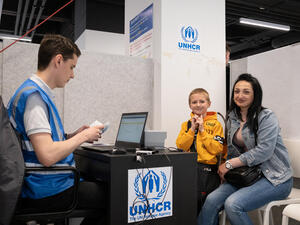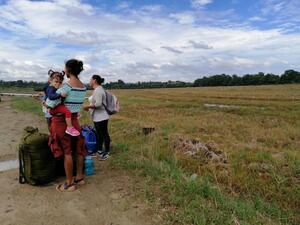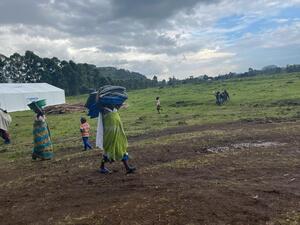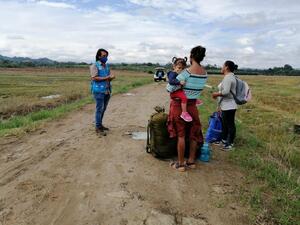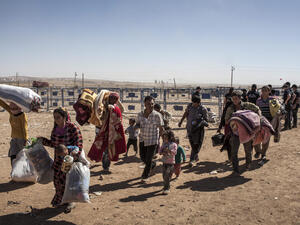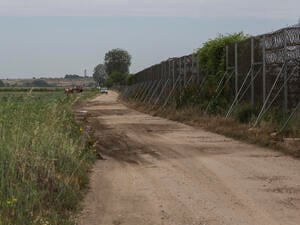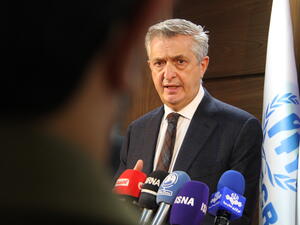UNHCR shocked at reported heavy loss of life in Mediterranean
UNHCR shocked at reported heavy loss of life in Mediterranean
We are shocked by the reports of hundreds of people trying to reach Europe missing off the coast of Libya. Details are still sketchy, but reports indicate a number of vessels carrying several hundred people set sail from the coast of Libya in the direction of Italy over the last few days. At least one boat reportedly went down and hundreds of people aboard are reported missing. Egyptian authorities said the mishap occurred about 30 kms off the Libyan coast and that some Egyptian nationals were rescued. Bodies were also recovered. Authorities said those aboard included North Africans and sub-Saharan Africans.
This is the beginning of the smuggling season in the Mediterranean. UNHCR Rome reported two boats have arrived in Italy this week - one carrying 244 people in Sicily; and another with 219 aboard in Lampedusa. Last year 36,000 people arrived in Italy by sea from North Africa. Some 75 percent of them applied for asylum and about 50 percent of those received some form of international protection from the Italian authorities.
This tragic incident illustrates, once again, the dangers faced by people caught in mixed irregular movements of migrants and refugees in the Mediterranean and elsewhere which every year cost thousands of lives.
High Commissioner António Guterres this morning expressed his great sorrow at the tragic loss of life. The High Commissioner described the incident as the latest tragic example of a global phenomenon in which desperate people take desperate measures to escape conflict, persecution and poverty in search of a better life. We are seeing it all over the world. As Mr. Guterres noted, globalisation has been asymmetric. Money moves freely; goods tend to move more and more freely; but the obstacles to the movement of people are still in place and, to a certain extent, increasing. This is a paradox. We have more and more people on the move and more and more barriers to their movement, creating a situation in which a large number of the people who cross international borders do so in an irregular way. And when people move in irregular ways, it becomes all the more difficult to distinguish between economic migrants and bona fide refugees or asylum seekers.
Mr. Guterres said the incident also underscores the need to increase international cooperation for rescue at sea.
In another development, Erika Feller, UNHCR's Assistant High Commissioner for Protection, is visiting Greece from today until April 3 for a series of meetings with Greek authorities that will include a discussion of the current situation of asylum seekers in the country, including arrivals by sea. Tomorrow, Ms. Feller will visit the port town of Patras where mostly Afghan migrants, including asylum seekers and over 250 unaccompanied minors, live in a makeshift camp.



